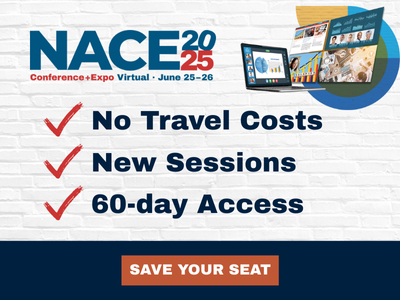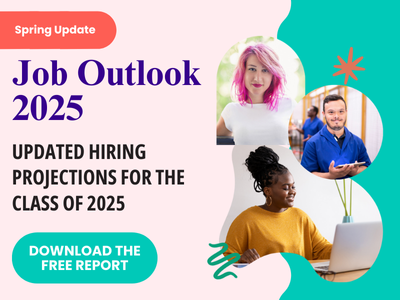Spotlight for Career Services Professionals
Spotlight for Recruiting Professionals
INROADS has co-developed a program to help organizations find diverse talent for paid internships at a greater number of the more than 100 historically black colleges and universities (HBCUs) across the United States.
INROADS created and conducted two pilots of its HBCU-Plus program with PwC.
“We considered how we can gain a greater representation of Black students and the colleges they attend among salaried interns in the United States,” says Forest Harper, INROADS president and CEO.
“At the same time, PwC made a commitment to ensure greater diversity in its internship representation. INROADS and PwC co-created HBCU-Plus, which is designed to unveil untapped and undiscovered HBCUs that have talented students who can compete for salaried internships throughout the nation.”
Funded by a grant from PwC, INROADS conducted the first pilot program, which included recruiting students from 65 HBCUs.
“It was a very high level of engagement, not only with student populations, but also with administrators, faculty, and student organizations on campus,” says Angela Karanja, national director talent management and head STEM initiatives at INROADS.
“It was very well received. In the first year, not only did we find more than 80 students who were qualified and who could compete for paid internships with PwC, but these students had an average GPA of 3.5 in STEM disciplines and 3.8 in finance and accounting, which were the two concentrated areas we focused on. After a competitive interviewing process, PwC hired 11 of these students for paid internships.”
The second year was even more successful, with PwC doubling the number of interns it hired from HBCUs to 22.
The success of the HBCU-Plus program is rooted, in part, in INROADS’ “surround sound” strategy, as Harper calls it. There are several components to this system:
- Karanja and her team are “boots on the ground,” visiting HBCUs and cultivating relationships with key stakeholders on campus;
- Key among these relationships were those built with career centers at HBCUs that do not typically get visited by recruiters from a Fortune 100 company;
- INROADS conducted extensive traditional media and social media outreach that included marketing on the radio, where, Harper says, many Black students, parents, and communities get their information; and
- They solicited referrals from students on campus who have had an experience with INROADS and can refer other students from their HBCUs.
“To work, we know that this has to be a multifaceted effort,” Harper says.
“Our student referral program provides the best testimony that we can have. We also like to pick examples of students who have graduated from HBCUs and made it to corporate America to use them as true examples of what students can achieve. PwC has several alumni who we featured as a part of our story and it was very effective.”
Karanja cites the work with student organizations as another effective method of sourcing potential interns.
“Working with student organizations is really pivotal for us,” Karanja explains.
“When we are working with PwC for STEM and accounting and finance interns, we connect with the National Association of Black Accountants, the National Society of Black Engineers, and others. We also build very strong relationships with professors, deans, and university presidents, and consistently communicate to them our process, goals, when we are coming to campus, and more.”
Harper says that another factor in the success of the HBCU-Plus program is that PwC is willing to stretch itself to engage HBCUs that have not been particularly visible to URR functions.
“There is an oversaturation in college recruiting at certain HBCUs,” Harper explains.
“Companies all tend to recruit at the same four or five HBCUs every year. HBCU-Plus is committed to unveiling competitive, untapped talent at all HBCUs. INROADS has influence on these campuses and, geographically, the program allows companies that have never recruited at HBCUs in Mississippi or Minnesota, for example, to do so.”
There are other advantages of this partnership. Karanja says she and her team have been paying attention to the NACE Coronavirus Quick Polls to see the impact the pandemic is having on the profession.
“One of the stats that we have been paying close attention to is in terms of how career centers are experiencing reduced budgets and hiring freezes,” she says.
“We know that these affect HBCUs more so than at traditional schools. We help our schools with some of the strategies they already have in place.”
For example, INROADS has capacity to conduct virtual interviewing and information sessions, and remote resume reviews.
“We extend a hand and partner with them in providing resources that overall strengthen the candidates' skills sets and preparation,” Karanja explains.
“Our corporate partners are engaged as well. When one of our INROADS partners heard that some of our students' internships were revoked due to COVID-19, they created remote internships specifically to make those students whole economically.”
The pilot tests have shown that other organizations can work with INROADS on HBCU-Plus to strengthen their commitment to diversity recruiting and equity. Harper says this work can also have a positive impact on racial and social injustice. To do so, he says, representation has to be a real and actionable metric.
“Representation throughout corporate America must, at a minimum, match that within the U.S. population,” he explains.
For example, he says that if African Americans and Hispanics make up 32 percent of the population, an organization’s salaried intern metrics must at least reach that number or it has work to do.
“Organizations need to go beyond their usual recruitment sources to scale the reach of schools that have large populations of Black and Hispanic students,” Harper says.
“In the same way that PwC has done, the strategy must be by design. Employers will need to educate and root out the systemic biases in their hiring processes, examine how they managed these processes, and reevaluate strategic relationship building with these schools. For some organizations, there must be a dedicated commitment to minority recruitment that is tenfold of what it was yesterday. We can play a key role in helping corporations access and scale diverse talent pools to build their 21st-century workforce through paid internships for students of color. To do this, they are going to have to get comfortable with being uncomfortable.”
To find out more about INROADS and its HBCU-Plus program, contact Angela Karanja at akaranja@inroads.org





